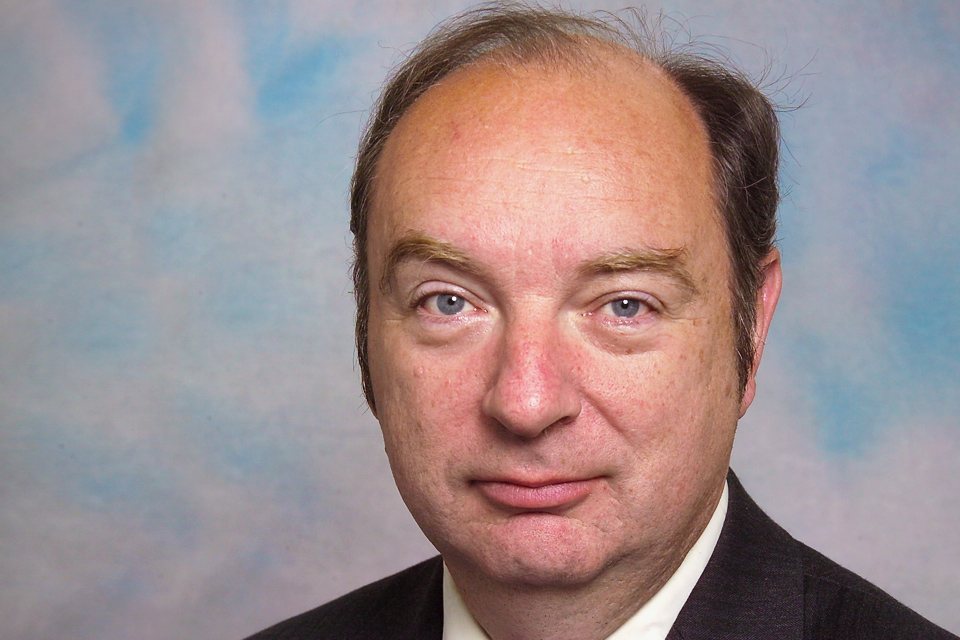Bus users UK
Transport Minister Norman Baker MP explains how the coalition government is committed to supporting buses in this video address.

Transcript
Hello. I was delighted to have been invited to give this address to Bus Users UK today. So it is with regret that I cannot be with you in person but pleased to be able to make a contribution with the help of video technology.
Buses are the backbone of our public transport system. They support our economy and they connect our communities. They open up access to vital public services such as health and education. And they provide a transport link between worker and workplace, with as many trips for commuting or business being made on buses as by rail.
Buses also have a vital role to play in helping encourage more people in busy urban areas out of their cars – so helping us cut carbon in the process.
The bus remains the most popular way for people to access the local town centre and, once there, it’s been calculated by the University of Leeds that bus users spend £22 billion every year on shopping and leisure.
So the coalition government is committed to supporting buses – our recent announcement on Better Bus Areas reflects this. And there are other significant government funding streams that are benefiting bus services in England.
We’ve run four rounds of the Green Bus Fund to help buses safeguard our environment. We’ve set up a £15 million fund to support the roll-out of smart ticketing technology across England’s bus fleets. And sustainable travel is at the heart of our £600 million Local Sustainable Travel Fund.
But it’s not only about funding. The key to unlocking improved bus services is getting people to work in partnership. And we’re already seeing the fruits of this here in Oxford.
Stagecoach and the Oxford Bus Company have taken advantage of the tools that are already there in law to set up agreements on the 2 main traffic corridors, with help from Oxfordshire County Council and introduced multi-operator ticketing.
Since these agreements were introduced, these operators now carry more passengers using fewer buses and offer passengers lower fares.
So it’s no surprise that Oxfordshire had a satisfaction rating of 91% in Passenger Focus’ Bus Passenger Survey, the second highest in the country.
I see Bus Users UK playing a useful role in helping partnerships like this to flourish, by voicing passengers’ concerns to operators, local authorities and those of us in the centre.
So I am pleased to see the steps you have taken in recent months to become better known and more accessible. I know that your Chair and Chief Executive have been working hard to make Bus Users UK an even more effective organisation.
That is reflected in the increased role that you have been given by the Scottish and Welsh governments. And I appreciate the input Bus Users UK provides to the department’s work through its involvement in groups like the Bus Partnership Forum.
I hope that members will help this work by continuing to get involved at the local level to strengthen and develop the voice of local groups. And Bus Users UK can also build on the detailed research base being built up by Passenger Focus, by exchanging information.
Although we all want to see more people using buses, we can’t just expect people to suddenly start using them. We know that once people actually try using buses, the experience is far better than the non-user first thought. So Bus Users UK can help by not just being a critical friend to the industry but also a champion, and spreading the word about the good things that are happening.
Of course there will always be complaints, and I would particularly like to commend Bus Users UK for the work it does on helping passengers resolve them. The number of complaints you handled about services in England increased by 54% last year.
And while an increase in complaints is never welcome, in this case, it is actually a vote of confidence in Bus Users UK. It is a reflection of the significant work you have done, with help from the industry and Passenger Focus, to raise awareness of your role.
And while we’re talking about complaints, you will no doubt be aware of the new European Regulation on bus and coach passenger rights. It came into force on 1 March 2013 and chiefly affects long-distance regular services of 250 kilometre or longer.
It sets out the responsibilities of operators and terminal owners when delays, accidents and other issues occur which affect passengers, including those with reduced mobility.
For complaints, we’ve proposed maintaining the current position in England (outside London), Scotland and Wales where, if passengers cannot resolve their complaint with the relevant operator or terminal managing body, Bus Users UK will review the complaint to try and resolve the issue. We’ll be making a formal announcement about what we’ve decided to do about complaints and enforcement in due course.
One area I’d like to highlight today is the significant role that driver attitudes have to play in passenger satisfaction. That was clear from the recent Bus Passenger Survey and is also coming through loudly in your complaint statistics.
So I was pleased to learn that Bus Users UK is looking at how you might help operators with the ambassadorial role drivers have for their company. That is an area where you can really make a difference in helping to drive up standards.
Once again, thank you for inviting me to be with you, albeit virtually. All that remains is for me to wish you good luck for today’s AGM and success for the year ahead. Thank you.